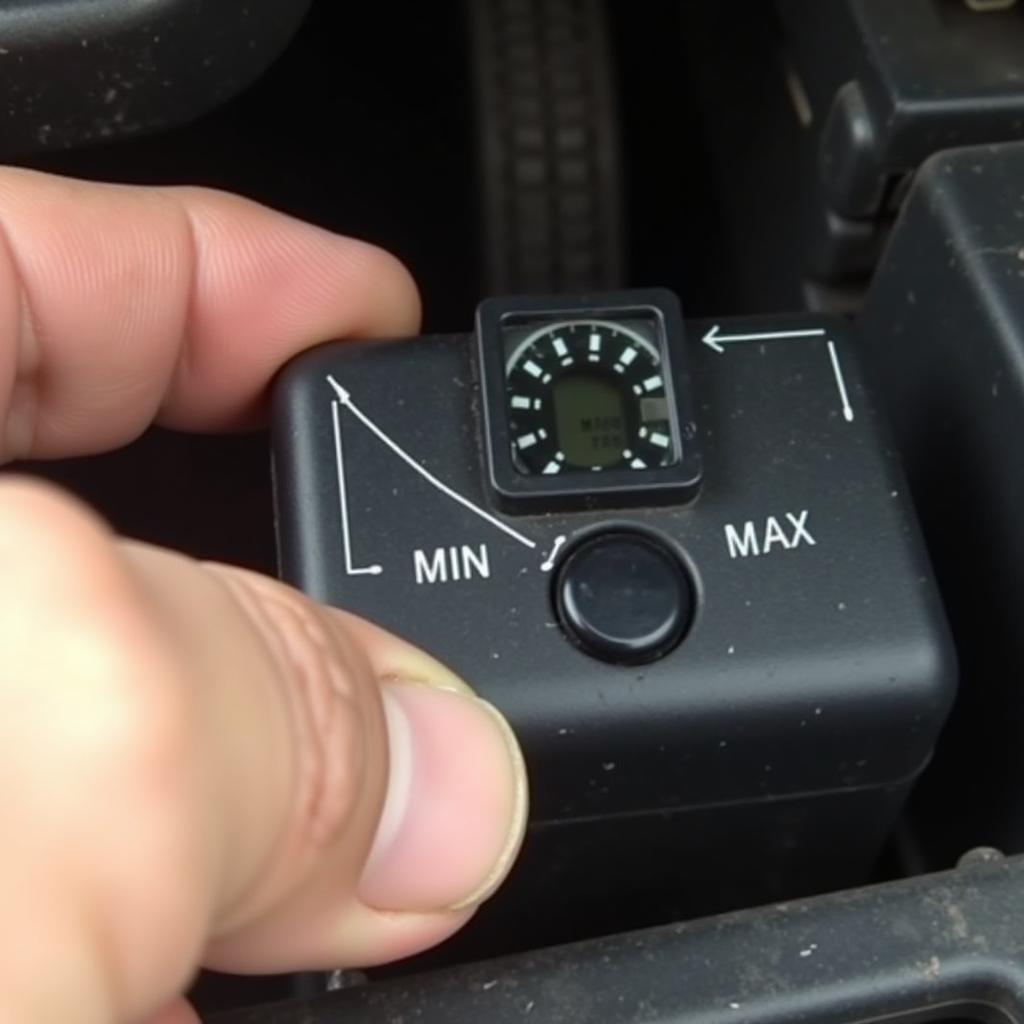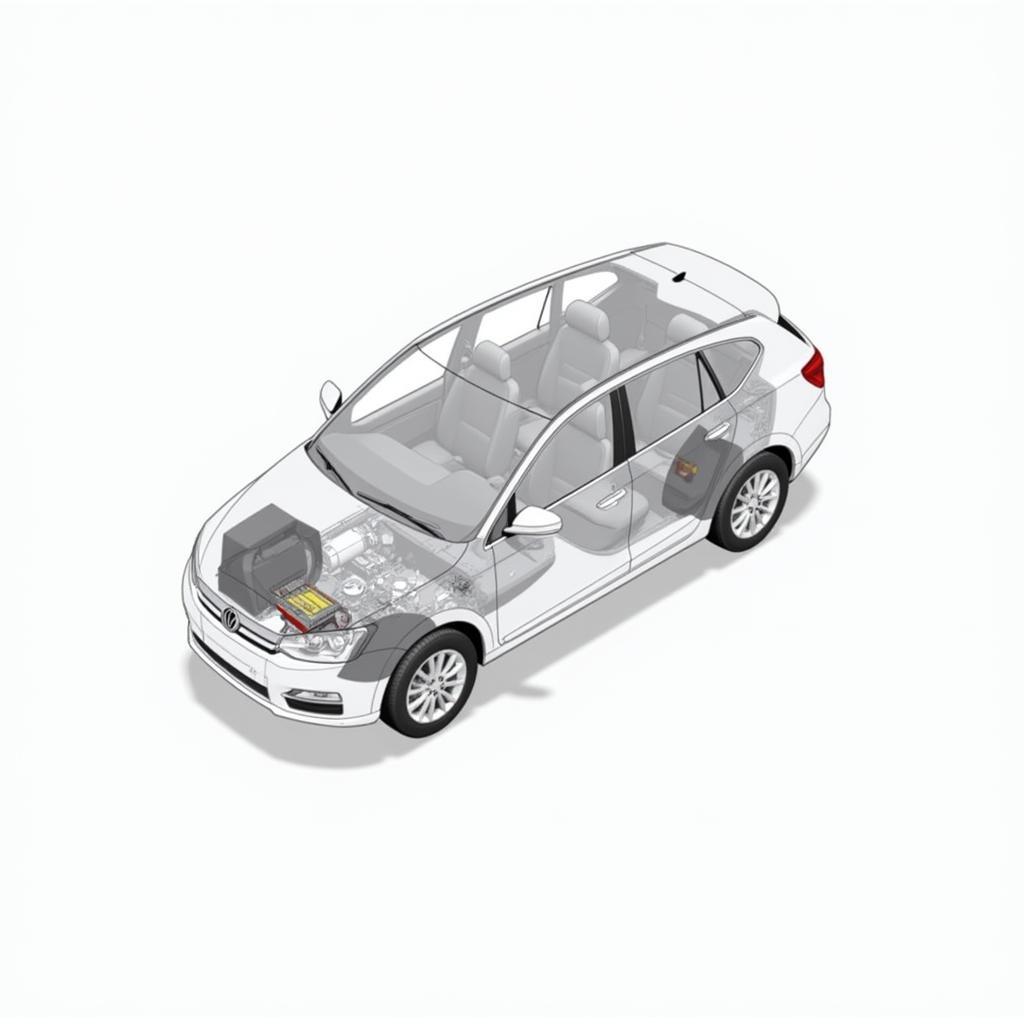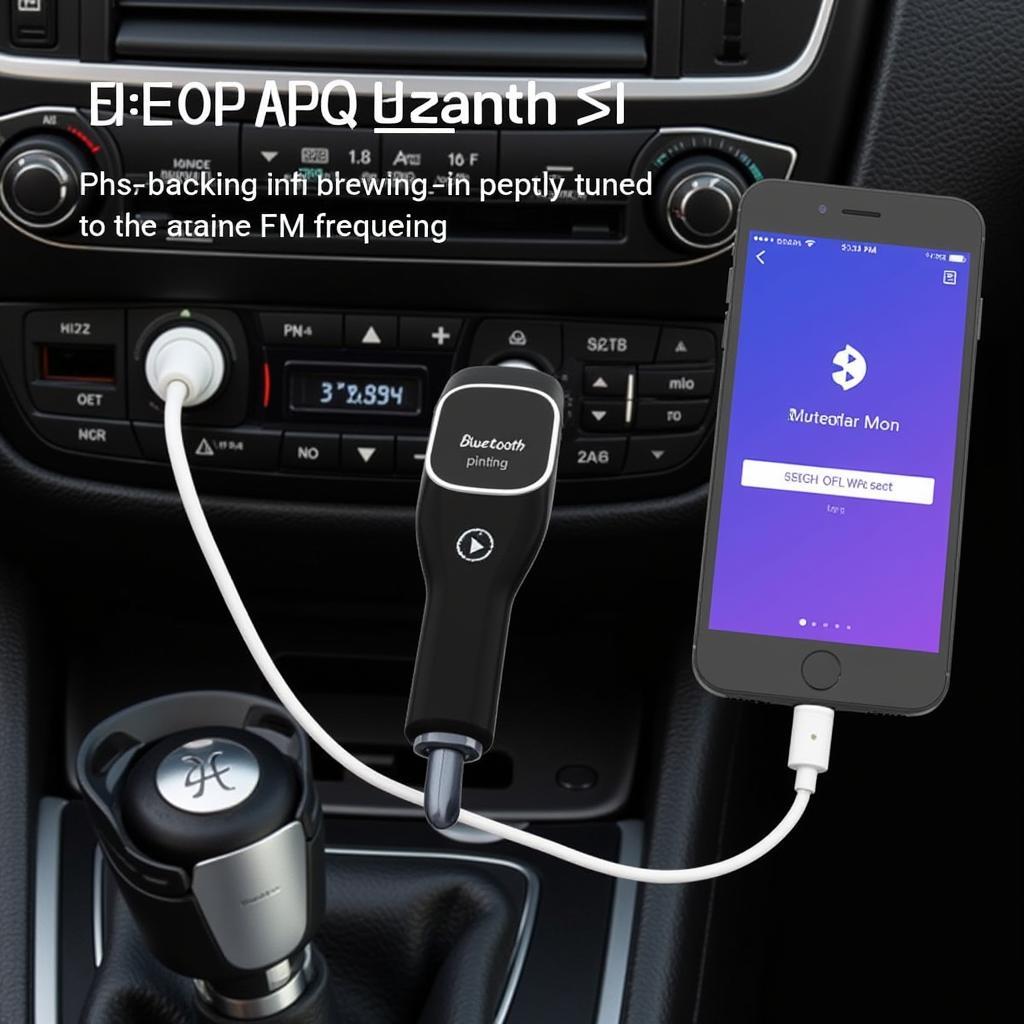If your 1998 Chevy 1500’s brake warning light is stubbornly glowing, it’s signaling a potential issue within your braking system. This article dives into the common causes, troubleshooting steps, and solutions for a 98 chevy 1500 brake warning light on, helping you get back on the road safely.
Understanding the Brake Warning Light
The brake warning light is a critical safety feature designed to alert you to potential problems within your braking system. Ignoring it can lead to dangerous situations, so addressing the underlying cause is crucial. In a 98 Chevy 1500, this light can illuminate for several reasons, ranging from a simple low brake fluid level to more complex issues like a faulty ABS sensor.
Common Causes of a Lit Brake Warning Light
Several culprits can trigger the brake warning light in your 98 Chevy 1500. Here are some of the most common ones:
- Low Brake Fluid: This is often the simplest explanation. Brake fluid levels naturally decrease as your brake pads wear down.
- Worn Brake Pads: Thin brake pads trigger a sensor that activates the warning light.
- Faulty Brake Light Switch: This switch, located near the brake pedal, can malfunction and illuminate the brake light.
- ABS Issues: Problems within the Anti-lock Braking System (ABS), such as a faulty sensor or module, can also activate the light.
- Parking Brake Engaged: Sometimes, the simplest solution is the right one! Make sure your parking brake is fully released.
- Leaking Brake Lines: A leak in your brake lines can cause a dangerous drop in brake fluid pressure.
Troubleshooting Your 98 Chevy 1500’s Brake Light
Addressing a lit brake warning light starts with systematic troubleshooting. Follow these steps to pinpoint the issue:
- Check the Parking Brake: Ensure the parking brake is completely disengaged.
- Inspect Brake Fluid Level: Open the hood and locate the brake fluid reservoir. Check if the fluid level is between the “MIN” and “MAX” marks.
- Examine Brake Pads: Visually inspect the brake pads through the wheel spokes. If they appear excessively thin, they likely need replacement.
- Check Brake Light Operation: Have someone observe the brake lights while you press the pedal. If they don’t illuminate, the brake light switch might be faulty.
 Checking Brake Fluid Level in a 98 Chevy 1500
Checking Brake Fluid Level in a 98 Chevy 1500
Solutions and Repairs
Once you’ve identified the cause, here’s how to address the issue:
- Adding Brake Fluid: If the fluid level is low, add the correct type of brake fluid specified in your owner’s manual.
- Replacing Brake Pads: Worn brake pads require replacement. This is a job you can do yourself with basic tools, or you can take your truck to a mechanic.
- Replacing the Brake Light Switch: A faulty brake light switch is relatively easy and inexpensive to replace.
- Addressing ABS Issues: ABS problems often require specialized diagnostic equipment. It’s recommended to take your 98 Chevy 1500 to a qualified mechanic for ABS repairs.
- Repairing Brake Lines: Leaky brake lines demand immediate attention. This repair is best left to a professional mechanic.
Why is my brake warning light on and off intermittently?
An intermittent brake warning light can suggest a loose connection, a failing sensor, or fluctuating brake fluid levels. This requires careful inspection.
Can I drive my 98 Chevy 1500 with the brake warning light on?
Driving with a lit brake warning light is highly discouraged. It indicates a potential braking system problem that could compromise your safety.
How often should I check my brake fluid?
It’s a good practice to check your brake fluid level at least once a month.
“Regular brake maintenance is key to preventing major issues. Addressing a lit brake warning light promptly can save you time, money, and ensure your safety on the road,” says Robert Miller, a seasoned automotive technician with over 20 years of experience.
Conclusion
A glowing brake warning light on your 98 Chevy 1500 should never be ignored. By following the troubleshooting steps and solutions outlined in this article, you can effectively address the underlying problem and ensure your vehicle’s braking system operates safely and efficiently. Don’t hesitate to consult a qualified mechanic if you’re unsure about any aspect of the repair process, especially when dealing with ABS issues. Your safety is paramount.


